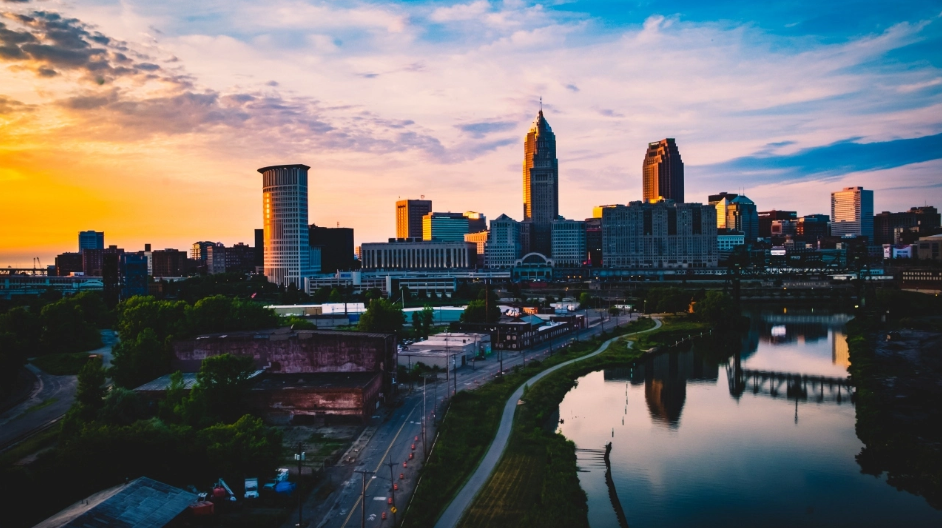Business
Survey: Majority of CISOs Aren’t Getting Cyber Investments They Want

Montana marijuana businesses can breathe a bit easier after local elections Tuesday, when voters rejected a proposed ban on adult-use businesses in the state’s most populous county.
State residents also approved 12 cannabis-related tax measures in various counties, signaling further voter approval of the marijuana industry.
In Yellowstone County, which is home to Billings and is easily the state’s most heavily populated county, voters nixed a proposed ban on recreational marijuana sales.
The ballot question lost, with 58% of voters opposed, according to data from the Montana Secretary of State’s office.
In addition, various sales-tax measures for both adult-use and medical marijuana – all amounting to about a 3% tax – were approved in Big Horn, Blaine, Carbon, Gallatin, Lake, Lewis and Clark, Powell, Ravalli, Richland, Roosevelt, Rosebud and Silver Bow counties.
“It will give more stability to the industry here,” Rich Abromeit, the president of the pro-marijuana campaign Better for Montana, said of the election results.
Abromeit, a longtime medical marijuana businessman and owner of Montana Advanced Caregivers in Yellowstone County, helped organize 22 local cannabis companies to stave off the countywide ban.
“We’re feeling really good. The voters have been heard, for a fourth time here in Yellowstone County,” Abromeit said. “The people want cannabis in their communities.”
Montana voters approved adult-use marijuana legalization in November 2020. Recreational sales began in January of this year.
The 2022 MJBiz Factbook projects adult-use sales this year will total $215 million to $265 million and reach as much as $300 million by 2026.
Industry sees one loss
Despite Tuesday’s string of victories, there was one industry loss in western Montana’s Granite County, where 53% of voters backed a ban on adult-use sales.
But industry insiders noted the county’s tiny population of 3,325.
Also, Tuesday’s voter turnout of only 1,355 in Granite County suggested the ban could be reversed in the future. The result also affects only one adult-use retailer in that county, industry insiders said, so it’s not viewed as a hefty blow to the marijuana community.
The added sales taxes at the local level, meanwhile, aren’t a welcome development for all business owners, said Kate Cholewa, a lobbyist and spokesperson for the Montana Cannabis Industry Association.
“It’s one of those things where cannabis businesses are just like any other business: They have to decide to what extent they pass that on to the consumer or to what extent they eat it,” Cholewa said of the 12 county cannabis taxes that were on the ballot.
“This does create more pressure in a time of great pressure.”
Additional growth?
Pepper Petersen, the president and CEO of the Montana Cannabis Guild, said he believes the election results Tuesday will spur more industry growth in the state.
Petersen predicted that more operators would expand into Yellowstone County now that the marijuana landscape appears to be on more solid footing for future development.
“I think we’ll see some more expansion. Some of the franchises that don’t have a footprint in Yellowstone County, I think we’ll see them reach in,” Petersen said, noting that it’s the state’s biggest population center and has the highest marijuana sales taxes and revenues.
And Petersen said he expects companies such as Abromeit’s – which has been based in Yellowstone County for years – to begin expanding as well.
“We’ll see the Yellowstone County businesses expanding, now that they have more assurances they won’t be shut down,” Petersen said.
“They’ve been waiting for some finality before a lot of people make additional investments, and this vote (Tuesday) may have given that to them.”
More changes ahead?
Looking forward, all three industry officials said they expect future tweaks to Montana’s marijuana laws.
Abromeit said he’s been talking with other cannabis company owners about taking further action to change, for instance, a portion of state law that prevents business owners from selling their cannabis companies.
Abromeit also wants to target a residency requirement for marijuana business ownership that he said is behind the times.
Cholewa said there’s been discussions to change the state law that allows for local cannabis ballot measures to go before voters essentially every election.
She noted the law could create constantly shifting regulatory landscapes if marijuana advocates and prohibitionists keep changing local statutes back and forth every few years.
“Should every municipality and county in Montana have the right to pull the rug out from under extraordinary investments every two years?” Cholewa asked rhetorically. “That’s what happened in Granite County.”
“There’s a conversation – not in the Legislature yet – but whether we want to bring that to the Legislature to talk about that.”
Source: https://mjbizdaily.com/montana-marijuana-industry-notches-victories-in-local-elections/